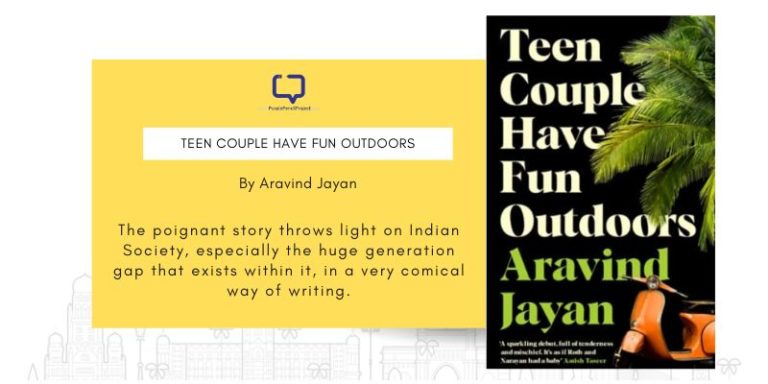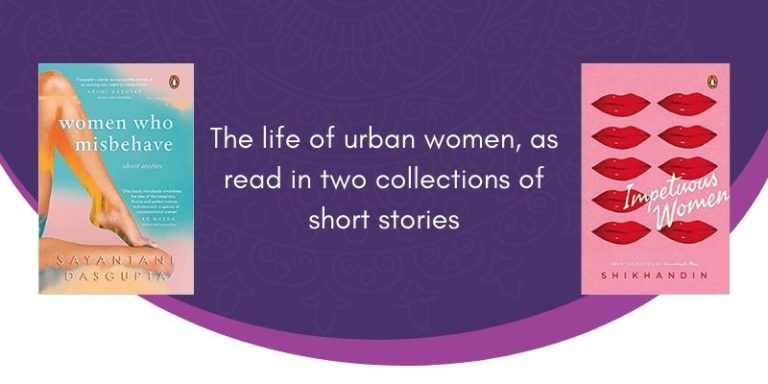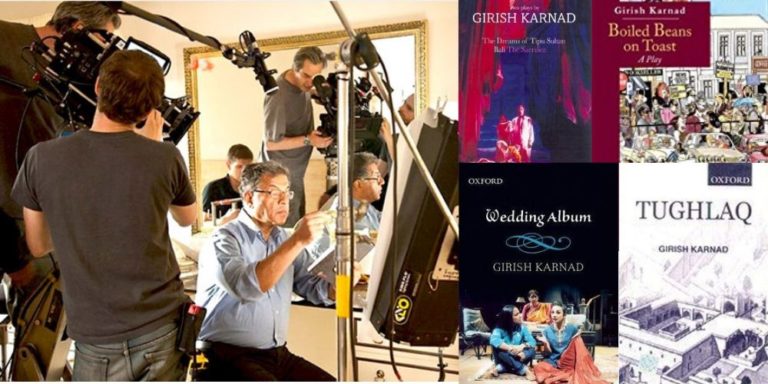Towards the end of Amitabha Bagchi’s Half the Night is Gone, one of the lead characters returns as a kathavaachak at the funeral of his own father, and says these lines in his sermon. “My friends, it is said that there are four ghats from which Tulsi’s holy lake can be approached: the ghat of wisdom, the ghat of bhakti, the ghat of humility and the ghat of duty.”
We encourage you to buy books from a local bookstore. If that is not possible, please use the links on the page and support us. Thank you.
He is the ‘Tulsipremi’ Diwanchand Motichand, quoting from the poet Goswami Tulsidas’ epic poem Ramacharitmanas (or simply, the Manas), on the pivot of which rests the entire book, as does our country (or at least half of it).
Tulsi’s poems, thoughts, and philosophies are used as a sort of founding wisdom of Half the Night, including the title. Layered with depth and perspective, symbolism and questions of love and duty, this is a book you don’t read just once. It’s the kind of book that will be taught at literature courses and be dissected endlessly.
And one way to do this is to return to our opening paragraph, and see how the four ghats to Tulsi’s lake form the pillars of this book, which follows the lives of three generations of two families, in the pre-independent era leading upto 1947, whose lives are intertwined with each other, that nudge and poke at the depth of our filial bonds, the servility of our mindsets, the scales of righteousness and more.
The Ghat of Wisdom
Wisdom is relative. What is a wise move in one circumstance can be suicidal in another. Half the Night has many pearls of wisdom to give its trope of characters. Khuda Baksh gives the wrestler’s advice to Mange Ram, a young player in Nawab’s court in pre-independent India. Mange Ram, who is then sold to Lala Motichand, is trained by Sahdeyi, the chief of staff in the household, in both matters of domestic politics and seduction. Lala Motichand is the quintessential patriarch guiding his sons, Dinanath and Diwanchand, while Diwanchand seeks wisdom from a kathavaachak in Banaras from whom he wishes to read the Ramcharitmanas more deeply.
There is contemporary wisdom too. Makhan Lal, Motichand’s bastard son, receives it from poetry and Karl Marx, Vishwanath, the fourth character of the book, an award-winning writer who is narrating the stories of Motichand and Mange Ram, finds that the death of his son brings the wisdom that no accolade, no fame, no creative endeavour can bring him; and that is the wisdom of empathy.
The Ghat of Bhakti
Bhakti, or devotion, forms a second crux of the feelings that our characters have towards each other. Mange Ram’s devotion to Hanuman, which he embodies first as strength and then as servility to the Motichand family, Motichand and Dinanath’s devotion to their families and their wealth, Diwanchand’s devotion to Tulsi and his words are evident.
If it’s not bhakti, then it’s in lamenting the lack of it. Vishwanath (later revealed to be a student of Makhan Lal who is employed as a teacher in a charity school owned by Lala Motichand), who ties the narrative together through letters, written after the death of his son, often laments how he couldn’t be as devoted to language as he should have, as a novelist.
Ditto Makhan Lal, who goes to a poetry reading in the city, understands but fails to grasp the power of poetry.
The Ghat of Humility
Humility, and to add to that, servility, are prominent in the actions of several characters. Dinanath, the working heir of Lala Motichand’s business, finds himself humbled as the father of four girls who could not stake a claim to the riches of the empire he was building. He is further humbled when his family have to make a decision after his father’s death – should they include the half-brother in the will?
Mange Ram’s son Parsadi finds that his purpose in life is to be the servant to Dinanath as Mange Ram was to Lala Motichand, the servant supreme.
Sahdeyi, too, has a moment of reckoning, when she faces the ugly truth – that her place as the mistress of Lala, the mother figure to Dinanath and Diwanchand and the monarch of staff politics was over, the moment the daughters-in-law came in.
The Ghat of Duty
And of course, the most important of them all. The ghat of duty. Duty of father to his stepson, of brother to brother, mother to son, husband to wife, wife to husband, son to father – name a relationship and Bagchi has touched upon them all.
In exploring all these relationships through the lens of a novel, Bagchi brings the Indian way of life alive, the unit of which is family. Using prose that comes close to capturing the Hindi it tries to represent, and the sense of a period of time talking to another, Bagchi gets many of the nuances right, even when they are built on what some of us would recognise as stereotypes.
There is political provocation too, in that Nehruvian, Gandhian and Marxist ideologies loom in the background, as followed by our protagonists. Makhan Lal’s atheism is cause for controversy. Vishwanath talks about the time he was upset at his brother, a Hindu priest in the US when the Babri Masjid was demolished. Lala Motichand is unconcerned about independence, so long as his business does not suffer.
At the centre is Ram, and in the last few pages, when Parsadi’s son plays Ram to impress Motichand, you wonder how a large part of our country has been doing that always.
“Each time (Tulsi) strikes it (the veena), our entire being resonates and all the oppositions that live within us, the selfishness and altruism, love and hatred, joy and sadness, all the grief and the celebration, are transformed into a musical vibration that travels through the ether that connects us to each other and to Shri Ram.”
And the whole book is pulsating to that rhythm of dualities that lives within each of us.
In a way, Bagchi summarises his own work, when he writes:
“…and even today, although Ram and Sita, Lakhsman and Ravan, the monkeys and the bears, the mighty Vali and the loving Bharat, and all the others, are no longer visible to your eyes or mine, the leela is still being played in a million forms all over this city.”
Opinion
It has been called the Great Indian novel, a term I am uncomfortable putting to it. It represents a fraction of our population, that of upper-class Hindus in the North of the country, even if it’s among the majority. While its socio-political and to an extent, even the socio-economic scenario is relevant, its use of Hindustani, its setting, its characters and context are all restricted to one part of our country.
It’s a great book if a little densely written in parts. It’s also a very Indian book, stylistically, for never has one language been able to evoke the context of another language so beautifully. But it’s not the greatest. As Gora has done before, it tries to understand the very root of what it means to be Indian, first excluding and then including the role of a woman. One of the most powerful sections of the story is when Omvati, Mange Ram’s daughter-in-law, stabs her father-in-law for assaulting her. At another time, she, against her husband’s wishes, resolves to have her son and herself educated so that they don’t have to meet the same fate as her family. It is perhaps a way of saying that women like Omvati are the hope for the half of the night that is remaining, and which will bring the dawn.
This sort of ‘correction’ also reflects in Vishwanath’s innumerable apologies for having been a jerk in the past – like a generation apologising to another, like history trying to seek forgiveness, like our elders saying, ‘we were not entirely right, and we are sorry’.
The cover, with the big mansion, the near-empty streets and details like the woman in the window are beautiful and apt and intricate. The font is good, though the words and sentences are a little cramped together, which takes time to adjust to.
All in all, this is a must-read. A must-have on your bookshelf.
Favourite Quotes:
This boy was now not just a man by age, or in the sense of being a husband and a father – he had been both for some years now – but in the sense of not needing his father to provide for him and his household.
The Lord is endless, his story is endless
Wise men hear it and recite it in many different ways.
Recommended For: Men, grandfathers and young boys, to show them the follies of the past and know what it means to be a man, and what it doesn’t.
Further Reading:
1. Ramcharitmanas, which is central to the novel.
2. The poem from which one of my favourite couplets is picked up.
3. The works of poets and writers such as Muneer Niazi, Shrilal Shukla, Qurratulain Hyder and Vinod Kumar Shukla, who are often mentioned in the book.























